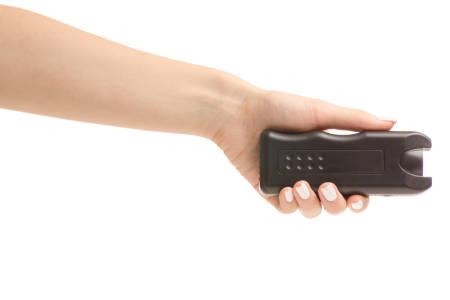Table of Contents
- Understanding Florida’s Legal Restrictions on Stun Guns and Tasers
- Key Requirements and Permits for Carrying Stun Guns in Public
- Safety Tips and Best Practices for Responsible Use
- Legal Consequences and How to Avoid Common Violations
- To Conclude
Understanding Florida’s Legal Restrictions on Stun Guns and Tasers
Florida law takes a measured approach to the ownership and carrying of stun guns and tasers, recognizing their role in personal defense while imposing clear boundaries to ensure public safety. In the state, adults aged 18 and older can legally purchase, possess, and carry these devices without a permit, which simplifies access compared to firearm regulations. However, it’s crucial to understand that despite their accessibility, stun guns and tasers are subject to strict usage rules to prevent misuse and potential criminal consequences. For instance, using these weapons in the commission of a crime or displaying them in a threatening manner can result in serious legal penalties.
Key points to keep in mind include:
- Prohibition against minors possessing stun guns or tasers.
- Restrictions on carrying these devices in certain sensitive locations such as schools, courthouses, and correctional facilities.
- Clear distinctions between lawful self-defense and unlawful assault using stun guns or tasers.
- Obligation to comply with local ordinances that may impose additional limits.
Understanding these legal nuances is vital to avoid inadvertent violations. Remember, the primary purpose of stun guns and tasers in Florida is personal protection, but wielding them responsibly and in accordance with state laws secures both your safety and legal peace of mind.
Key Requirements and Permits for Carrying Stun Guns in Public
In Florida, carrying a stun gun or taser in public is legal, but there are important regulations that must be followed to avoid any legal complications. While the state does not require a permit specifically for stun guns or tasers, users must be at least 18 years old. Additionally, these devices can only be carried for self-defense purposes and not for any unlawful intent. It’s imperative to understand that certain places, such as schools, government buildings, and airports, prohibit carrying stun guns regardless of the user’s intent.
Key considerations to keep in mind include:
- Stun guns must not be brandished or used in a threatening manner that could be interpreted as assault.
- Possessing a stun gun is prohibited for convicted felons under Florida law.
- Devices should be kept away from minors and stored securely when not in use.
Safety Tips and Best Practices for Responsible Use
When carrying stun guns or tasers, always prioritize the safety of yourself and others. Ensure you fully understand how your device operates before use by thoroughly reading the manufacturer’s manual and practicing proper handling in a controlled environment. Never aim or discharge your stun gun or taser at children, pets, or individuals who are unconscious or incapacitated. Maintaining situational awareness and using these tools strictly for self-defense can prevent unnecessary injuries and legal complications.
Adopting best practices enhances responsible ownership, including these essential habits:
- Keep the device securely stored and out of reach of unauthorized users, especially minors.
- Check local jurisdictions for any updates to stun gun regulations and comply at all times.
- Regularly inspect and maintain the device to ensure it is in proper working condition.
- Be aware of your surroundings and avoid using the device in crowded or confined spaces where bystanders could be accidentally harmed.
Legal Consequences and How to Avoid Common Violations
Violating Florida’s regulations on stun guns and Tasers can lead to significant legal repercussions, ranging from fines to felony charges depending on the circumstance. Possession by individuals under the age of 18, carrying devices into prohibited areas like schools or government buildings, and using them for unlawful purposes can trigger criminal prosecution. Notably, carrying a stun gun with intent to commit a crime elevates the offense to a serious felony, emphasizing the importance of responsible ownership and use. Understanding these nuances is crucial to ensure you remain compliant and avoid harsh penalties that can impact your record and personal freedom.
To steer clear of common violations, consider these key practices:
- Verify age requirements: Only purchase or carry devices if you meet the minimum age limit.
- Avoid restricted locations: Familiarize yourself with places where stun guns and Tasers are banned, such as schools, courthouses, and certain public events.
- Use strictly for self-defense: Never brandish or deploy your device unless you face an immediate threat.
- Educate yourself on local ordinances: Some counties or cities may have additional restrictions beyond state law.
To Conclude
In navigating Florida’s stun gun and Taser laws, staying informed is key to ensuring you carry responsibly and within legal boundaries. Whether you’re considering self-defense options or simply want to understand your rights, knowing the specifics-from age restrictions to where you can legally carry-can make all the difference. Always remember to stay updated, as laws can evolve, and when in doubt, consulting local authorities or legal professionals is a smart move. Stay safe, stay informed, and make empowered choices when it comes to personal security in the Sunshine State.Check Our Other Blogs
- StunGun – Your Trusted Source for Stun Guns, Laws, and Self-Defense Tips
- PepperSprayLaws – Your Trusted Resource for Pepper Spray Information
- StunGunLaws – Your Trusted Guide to Stun Gun Legality and Safety



